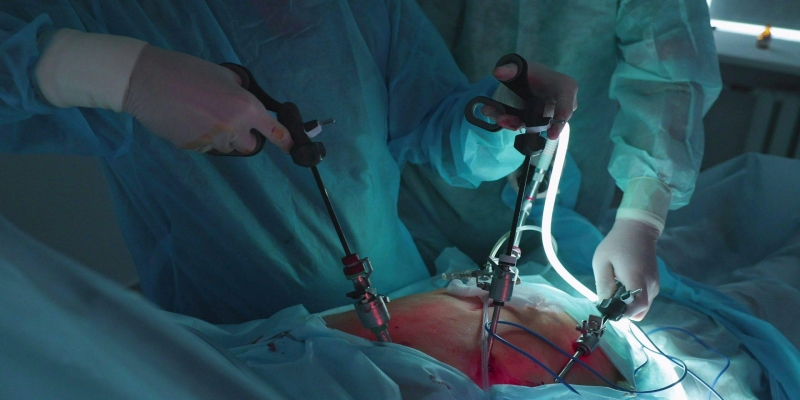All About Gallbladder Stone Surgery: Diagnosis and Treatments
2023-10-23 / RG STONE HOSPITAL / Gall Bladder Stone

These pesky little stones can cause quite a bit of discomfort, and sometimes, surgery becomes a necessity. In this article, we're going to explore everything you need to know about gallbladder stone surgery, diagnosis, and treatments. So, if you or someone you know is dealing with this issue, let's get started.
Understanding Gallbladder Stone Surgery
What Are Gallbladder Stones?
Gallbladder stones, also known as gallstones, are hardened deposits of digestive fluid that can form in your gallbladder. They can range in size from a grain of sand to a golf ball, and they often go unnoticed until they start causing pain or other complications.
When Is Surgery Necessary?
Now, not every gallstone requires surgery. Many people can manage them through lifestyle changes or medications. But in cases where the stones are causing severe pain, inflammation, infection, or blocking the bile duct, surgery becomes the best option.
Diagnosing Gallbladder Stones
Symptoms to Watch For
The first step in addressing gallbladder stones is to recognize the symptoms. These can include sudden and intensifying pain in the upper right abdomen, pain between the shoulder blades, nausea, and vomiting. If you or someone you know experiences these symptoms, it's time to consult a healthcare professional.
Diagnostic Tests
To confirm the presence of gallstones, your doctor might recommend diagnostic tests like ultrasound, a CT scan, or a HIDA scan. These tests provide a clear picture of what's happening inside your gallbladder.
Non-Surgical Treatments
Medications
If gallstones are small and not causing significant issues, your doctor might prescribe medications to dissolve them. It's essential to follow your doctor's recommendations closely if you're pursuing this non-surgical route.
Lifestyle Changes
For those with a history of gallstones, making some lifestyle adjustments can be incredibly helpful. Maintaining a healthy weight, eating a balanced diet, and avoiding rapid weight loss can reduce the risk of stone formation.
Gallbladder Stone Surgery Options
Laparoscopic Cholecystectomy
When surgery is necessary, the most common approach is a laparoscopic cholecystectomy, often referred to as "keyhole surgery." In this minimally invasive procedure, a surgeon makes small incisions and removes the gallbladder. Recovery time is relatively quick, and scarring is minimal.
Open Cholecystectomy
In some cases, open cholecystectomy may be required, especially if there are complications or inflammation. This procedure involves a larger incision and a more extended recovery period.
Post-Surgery Recovery
Recovery Period
After gallbladder surgery, most people can return to their regular activities within a week or two. However, it's crucial to follow your surgeon's post-operative instructions for a smooth recovery.
Diet Changes
Many individuals wonder about dietary adjustments after gallbladder removal. While you can still enjoy most foods, some people may need to make slight modifications to their diet to manage digestion better.
Potential Complications
Complications Are Rare
Complications from gallbladder surgery are rare, but like any surgical procedure, there are risks. These can include infection, bleeding, injury to the bile duct, or anesthesia-related issues.
Life After Gallbladder Surgery
Adjusting to Life Without a Gallbladder
Once your gallbladder is removed, your body will adapt. Bile will flow directly from your liver to your small intestine, which can lead to changes in digestion. Some people experience more frequent bowel movements or changes in stool consistency.
Conclusion: Your Path to Relief
Gallbladder stone surgery can be a life-changing event, providing relief from pain and discomfort caused by these troublesome stones. If you suspect you have gallstones or have been diagnosed with them, don't hesitate to consult with a healthcare professional to explore the best treatment options for your situation. Remember, you're not alone in this journey, and modern medicine has made gallbladder surgery safer and more effective than ever before. Your path to relief starts with a conversation with a healthcare expert.
Categories
Hernia Repair
Appendicitis
Piles
Urological Treatment
Hernia treatment
Enlarged Prostate (BPH)
Gall Bladder Stone
Urinary / Kidney Stone
Vitamins
Indian Health Care System
Exercise
Obesity
Female Urinary Incontinence
Single Incision Laparoscopic Surgery (SILS)
Kidney Cancer
Bladder Cancer
Ovarian cancer
Nephrology
Bariatric Surgery
Kidney Function Test
Female Urology
Radiation Therapy
Alcoholic Fatty Liver
Liver disease
Gastroenterology
Kidney Disease
Nutrition & Health
Lung Cancer

